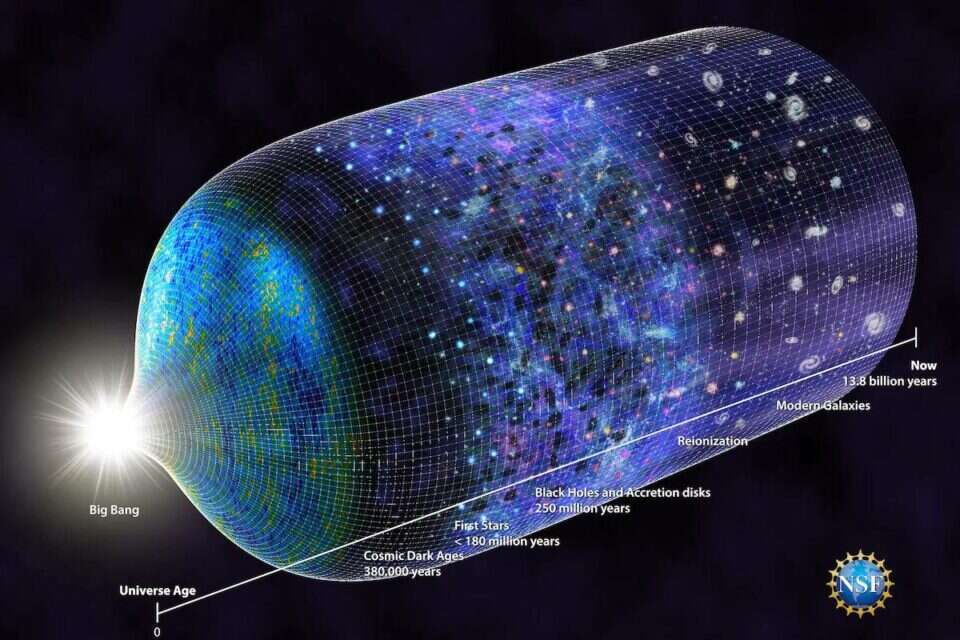A new study published last week by scientists at the University of Ottawa in Canada put the age of the universe at 26.7 billion years – twice the estimated age of the current scientific approach (13.7 billion years). If the research is indeed correct and the age of the universe is double the prevailing scientific estimates, then this is a real revolution and a significant change in existing knowledge regarding the universe.
In order to establish their calculation, the scientists used a number of different scientific theories related to calculating the age of the universe, some of which are established in the scientific world and others are innovative. By combining these theories, the researchers were able to create a new method for calculating the age of the universe.
Reuters
Ancient galaxies and a state-of-the-art telescope
The age of the universe has been at the core of space exploration for many years, with the theory that was accepted until now estimating its age at about 13.7 billion years. In this theory, the calculation was performed by looking at distant stars and celestial bodies and measuring the light coming from them to Earth, or in other words – measuring the wavelengths of light rays coming from those distant stars and galaxies.
One of the factors that made the old theory irrelevant is the James Webb Space Telescope, which replaced the old Hubble Space Telescope, allowing observations over greater distances than ever before. Thanks to the innovative telescope, researchers have discovered stars and galaxies in recent years whose estimated age is greater than the age of the universe (which of course is not possible).
Hexagonal mirror at the James Webb Space Telescope, photo: AP
Among James Webb's significant discoveries are a series of ancient and evolved galaxies that, according to previous calculations, place their age close to the moment when the Big Bang occurred and the universe was born. According to the same calculations, these galaxies reached a developed state only about 500 million years after the Big Bang occurred—a time that, in terms of the universe, is too short for galaxies to reach a developed state.
The New Theory
To the questions raised in light of James Webb's recent discoveries, no unequivocal answer has yet been found in the world of science, and it is not inconceivable that at some point an answer will be found that does not necessarily contradict the calculations accepted today. However, according to the scientists who authored the study, perhaps the simplest explanation is that the age of the universe is larger than previously assumed.
The study's lead author, Professor Rajendra Gupta, argues that "the new model answers all the questions that remain open about the age of the universe." According to him, the study also addresses other questions such as what is "dark matter" that exists in the universe and has not yet been discovered.
Wrong? We'll fix it! If you find a mistake in the article, please share with us

